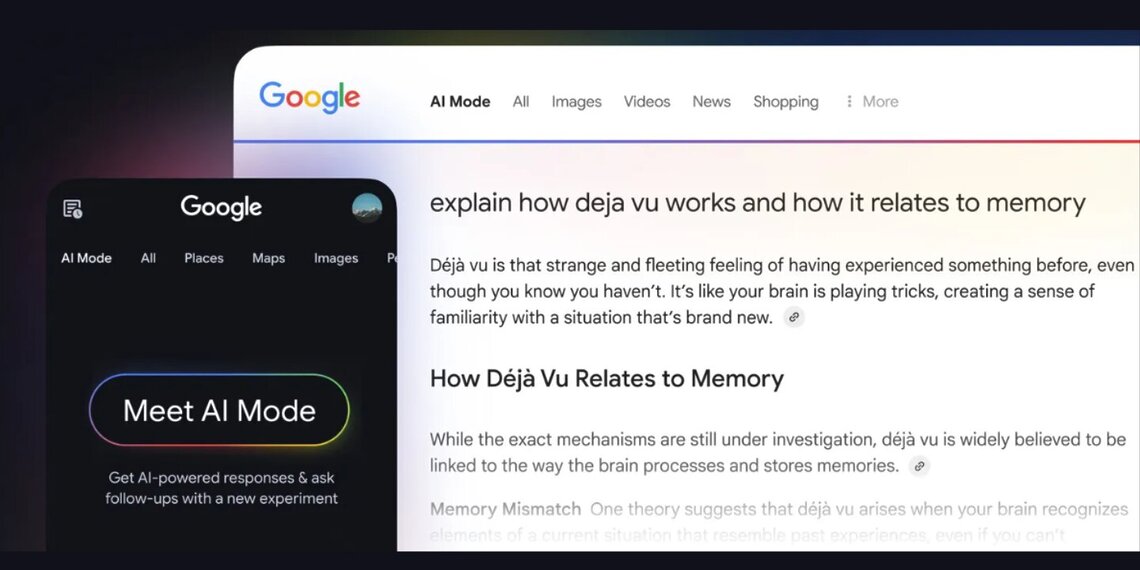Google has been actively expanding its AI Overviews and introducing a new experimental AI Mode in Search. These features aim to provide users with more comprehensive and nuanced AI-powered responses to their search queries.
Google’s AI Mode and expanded AI Overviews significantly enhance search by providing synthesized, conversational answers to complex queries, improving efficiency and information accessibility. Users can get direct answers with follow-up prompts, reducing the need to visit multiple websites. Multimodal capabilities further boost versatility. This can be highly beneficial for quick understanding and in-depth research.
Key points:
- AI Overviews: These are now used by more than a billion people and are getting upgraded with Gemini 2.0. Teens can now use AI Overviews, and users no longer need to sign in to access them.
- AI Mode: This new Search mode expands what AI Overviews can do with more advanced reasoning, thinking, and multimodal capabilities. It’s particularly helpful for questions that need further exploration, comparisons, and reasoning.
- Gemini 2.5: Google is bringing a custom version of Gemini 2.5, its most intelligent model, into Search for both AI Mode and AI Overviews.
- Deep Search: This new feature uses the same query fan-out technique but taken to the next level. It can issue hundreds of searches, reason across disparate pieces of information, and create an expert-level fully-cited report in just minutes, saving you hours of research.
- AI Mode Rollout: AI Mode is now rolling out to all users in the U.S.
However, these advancements present notable drawbacks. A primary concern for publishers is reduced website traffic and click-through rates as AI Overviews aim for “zero-click searches,” potentially impacting revenue for content creators. Concerns also exist regarding the accuracy of AI-generated summaries and the possibility of “hallucinations.”
Additionally, content creators must adapt SEO strategies to ensure their information is featured in these AI responses, shifting focus from traditional keyword rankings to high-quality, structured content. The new search paradigm requires careful navigation for both users seeking reliable information and creators striving for visibility.










